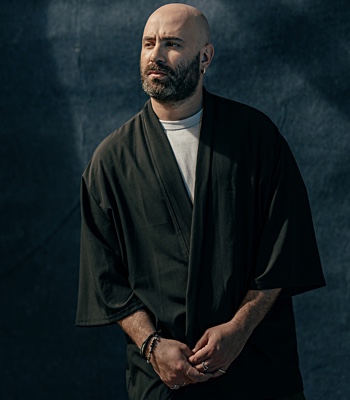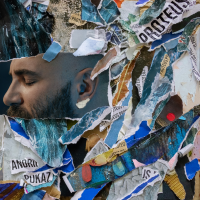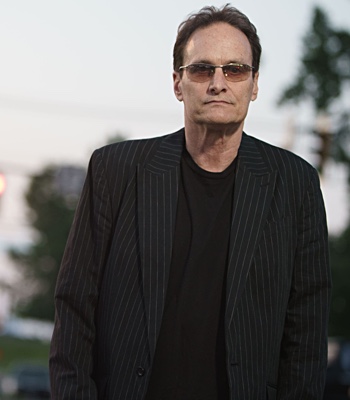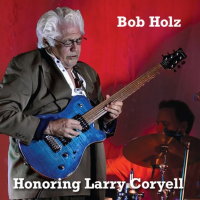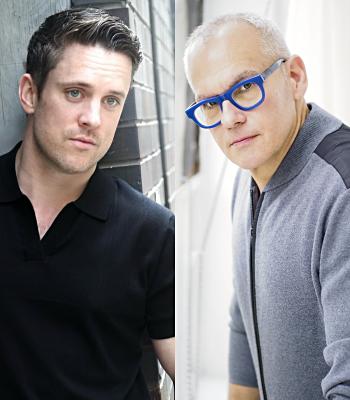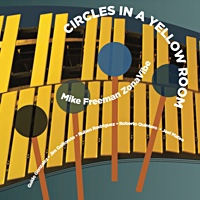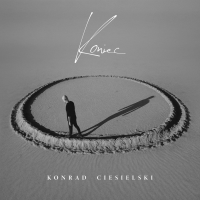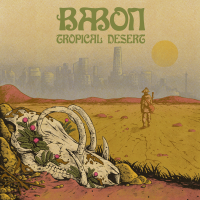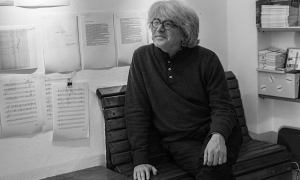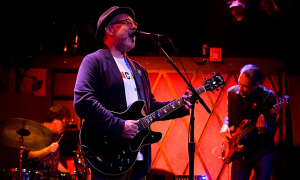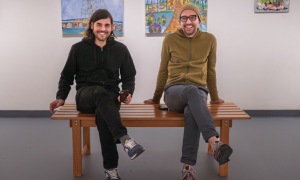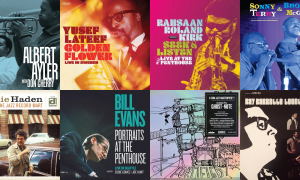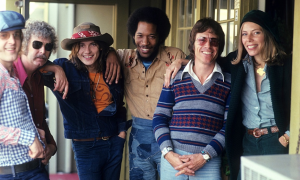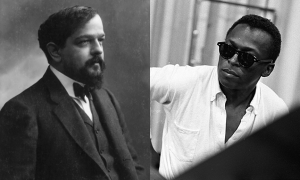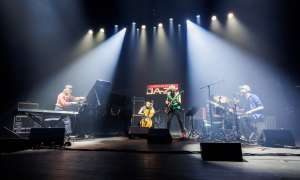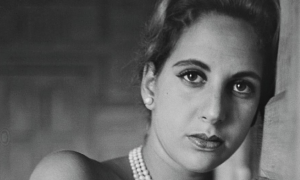Home » Jazz Articles » Interview » Craig Taborn: Rooted
Craig Taborn: Rooted
The more someone is willing to face the possibility of failure, the more one is able to learn how to surmount that...and that's what makes real improvisers, I think - a fortitude.
From early collaborations with James Carter, Taborn has gone on to work in a wide variety of settings, from acoustic trios to electronic and techno. He has played with some of the most innovative musicians around, such as Roscoe Mitchell, Bill Laswell, David Torn, David Binney and Lotte Anker, to name but a handful. In whatever setting he appears, Taborn leaves an indelible mark.
In recent times, Taborn has hooked up with long-time associates and two of the more elemental forces in creative music today—bassist William Parker and drummer Gerald Cleaver. In such empathetic company, Taborn can be heard at his most daring. On Farmers by Nature (AUM, 2009), an hour-long live improvisation of intense trio interplay, the lines of leading and comping are so thoroughly intertwined as to be indistinguishable. It is a collaborative improvisation which stems from a deep musical knowledge and a deeper shared understanding, and it is a music which takes the listener into the eye of the storm.
All About Jazz: Yourself, Gerald Cleaver and William Parker have played a lot together in various settings. It must have seemed very natural to finally make a recording together just the three of you, no?
Craig Taborn: Yeah, absolutely. It was selfishness on my part; I just really wanted to play with those guys. [laughs]
AAJ: How much discussion or preparation did you have before the concert at The Stone which produced the hour of improvisation which came out as Farmers by Nature?
CT: None at all, basically. [laughs]
AAJ: So you just said: "Hey guys, see you at the gig. Don't forget your instrument"?
CT: [laughs] Yeah, that's about it. There was no worry about that. It was exciting to see what would occur, if that makes sense. There was truly no talk about what we were going to do.
AAJ: Was knowing that the gig was being recorded in any way intimidating for you?
CT: No, it wasn't. The recording was just something that Gerald thought to do, and we had John Rosenberg come in and record it, although at the time of the gig the intention wasn't necessarily to make a CD for distribution. It was just to document what we were going to do just because we were excited about playing, so there was no pressure. It wasn't consciously a recording session in that sense. We wanted to get a good document of it.
AAJ: On the subject of documenting gigs, where do you stand on audience bootleg recordings?
CT: Well, I have a complicated relationship to that actually, because I've certainly benefited as a listener and as a musician from hearing a number of bootleg recordings, so from that perspective I don't really have a problem with it. At the same time, there's a certain respect that should be paid to the artist creating the music. Maybe it shouldn't be done without their knowledge, and then if they prefer for any reason not to have it documented then you probably shouldn't.
The financial aspects of it are an issue as well. There was a time when people were really making money off bootlegs. There were guys in Eastern Europe who would bootleg a concert and then make a CD that looked better than an official release, and they were making money, taking all this money off of somebody. That, I'm definitely opposed to. But in terms of people just documenting gigs, I think it's nice when people let you know they're doing it, and it's nice when people ask, and it's nice when they respect an artist when they say: "Hey, you know, I'd rather you not do it."
AAJ: Farmers by Nature is a very democratic-sounding recording, everybody is leading and everybody is supporting all at the same time. Was that a very conscious decision or was it a natural evolution?
CT: I think it's a very natural part of how we play. For my part, as a pianist, there's a tradition of piano trios where the piano is the lead, and I absolutely don't want to do that; it's a little daunting, it's a little tiring and it's much more interesting for me to try and function in an ensemble context with that particular instrumentation. I definitely don't want to be the piano solo voice with a rhythm section behind me, especially with those guys, because they are often generating more interesting information at the time.
For my part, and I think for all of us, we are improvising together and it's largely personalities, so the instrumentation is almost secondary in a way. It was more I played with William and Gerald. The bass, drums and piano was just circumstantial. It's more about the personalities, the musicians; if William had come in with a recorder, we would have played.
AAJ: You know William Parker and Gerald Cleaver very well. Can you tell us what it's like to play with them and what their strengths are as musicians?
CT: The biggest thing for me with both of those guys is that they are so rooted, and what I mean by that is that they truly have a connection to...you know, I hate using the word tradition because it's hackneyed and such a jazz related thing, and it carries a weight I don't mean and it loses a weight that I actually do. I would say that they are both rooted in the essence of what all of that music is about when they play. They both bring the weight of everybody who has played before and all the implications of that, almost in a metaphysical sense. Before anything instrumental, technical or even musical, it's just deep playing with them. They're coming from such a deep place. You can feel the ground, you can feel the connection to everything, and it doesn't feel like they've really had to learn it, or build it up over time. It's just something that's really strong within them. That's what I get out of both of them.
And with that, you just get this wealth of playing experience, that's connected to that. There's so much history that they have with playing music in a variety of contexts and with a lot of different people and that comes out really clearly. The decision making then becomes very effortless. There's an ease in listening and responding without having to force any details.
AAJ: When you guys are playing together, how much of your communication is visual?
CT: I think, very little. When we were recording that, I don't remember anything visual; I don't think I looked. I'm sure there were times I glanced up. And that's not lack of attention. I just think everybody goes inward to go outward, if that makes any sense. We're not a visually cueing type of ensemble. I don't think any of us really play that way. It's much more closed eyes and listening.
It's intensely interactive and there's a lot of communication, but I don't think very much of it is visual; on my part, almost none of it. There's actually a video tape of that gig too, and I've seen it and I'm not looking at anything. [laughs] I don't think anyone is really looking too much. I've played with Gerald for 20 years and with William for 10, and I just don't think any of us is that kind of player.
AAJ: Tell us a little about the choice of title for the CD, Farmers by Nature.
CT: It largely comes from Gerald, so he's a better person to talk to fully about the inspiration. He came up with it and it was agreed upon. I think it's related to what I was talking about before, as literal as it may seem—that rooted connection to essential things and that agricultural bit is part of it. There was an awareness before we got together to play the first time that the strength of the ensemble would be that we'd all approach music that way, from, for lack of a better word, a much earthier place. Essentially, where the music is coming from is that it's organic; it's nurtured from trying to tap into the root essence of ourselves and really pulling from that.
There are other groups I play with where there may be more artifice, not to say that it is totally artificial, but there may be concepts or a different level of design that exists on top of it. This is pretty earthy stuff and it was intended that way, without even talking about it. That's why we wanted to get together and do that ensemble (even though we all played in many groups and some of them with similar instrumentation) you know, as a place to go and fully dwell in that organic, raw state and try to create from that.
AAJ: Subsistence farming, the concept which Gerald Cleaver compared
CT: With this particular ensemble, I would say it requires a lot. I mean, I pull a lot out of myself when I play this music. I can say I try to do that all the time. I really go in as far as I can go when I'm playing, and there's a lot of exertion going on. But it isn't exhausting because it's a nourishing musical environment, so I find I tap into endless reservoirs of creativity and vitality, which isn't always the case. In some contexts that I played in I can easily get spent, and it's not like they're bad. I go in and kind of wring it all out, every ounce of it, and then it's gone. And when it's done you're sort of done and you go home and you're exhausted for a while.
But with this, even though I'm wringing so much out of it I don't run out of either energy or ideas. I think that has something to do with the musicians and the context, and the idea of the context, which is that we're tapping into that root source. There's a lot being spent but I tap into a wellspring that never really runs out.
AAJ: The music on Farmers By Nature clocks in at just over an hour, which seems like a long time to continuously improvise. Did you decide to play until you had said all you could, or did you have a time frame in mind and say: "Let's see what we can do in an hour"?
CT: It's a performance. [laughs] How long is a performance? We had an hour or something to play, so it was constrained by that. I don't know if we'd had no specific limit if we would have gone on longer. Saying that, I think that's the amount of time it took that music to be made. We knew it was going to be around an hour but also it just seemed the right amount. We said what we wanted to say in that time, for that evening. I remember when we played it felt: "Okay, we're done now."
AAJ: About a third of the way in, on the oddly titled "Not unlike Number 10," you are really flying at a certain point, and we get to hear your two-handed playing technique—simultaneous lines at speed—which is quite remarkable. Is that something that was always there when you started to play the piano, or is it something you've worked very hard to develop over time?
CT: You mean two different lines or the same line?
AAJ: Two different lead lines, one with each hand.
CT: I've worked to develop that in a number of ways. It's a way I've always thought, I'd say that. I hear multiple parts going on. I hear a lot of different things. I think one reason I liked the piano and gravitated towards the piano is because it's an instrument where you can play more than one thing. Over time when I improvise, when I'm doing anything, I try to get more than one idea going at once. There are certain things I practice but it's more just getting into the habit of always playing that way, of improvising that way, of hearing multiple ideas and truly trying to render different ideas. There's a limit to it, of course, but I've always heard that way and I've tried to develop my playing around trying to render what I'm hearing.
AAJ: The need to name the music, to break it down and give it names, seems like an odd thing to do with an uninterrupted piece of improvised music. Was that a commercial consideration, and how did you come up with the titles?
CT: Those pieces, the way they exist on the record—they were discrete musical statements in the performance, so they really do represent discrete entities. For the titling, a large part of the credit goes to Gerald. At that level and with this stuff, titling can seem strange, but it definitely wasn't a commercial consideration, more finding a reference that resonated on a certain level. It's just like naming a painting or something. You could be very clerical and have a cataloguing tile, you know, number one, number two, or Roman numerals, but it's more interesting to allow language or naming to enter the process. There is identity to the pieces and we give things names.
AAJ: Returning to performance, what for you is the most important consideration when you play with other musicians?
CT: An open mind as is possible to what's going to occur. That I'm listening—that I'm really truly listening and that my ears and mind are open to trying to encounter the music in real time and that I'm not blocking. Going in with any kind of preconceptions, either about the way I'm going to play—and a lot of people do that, you know: "Oh tonight because it's this place or because I've been doing this kind of music, I'm going to play with some energy"—anything like that I try to get rid of, and any preconceptions you might have about other players. I try to clean the slate and just listen to what is happening now and allow it to be what it's going to be, regardless of the context.
AAJ: You just mentioned "truly listening." Do you find with musicians that the bigger the ego, the less they tend to truly listen?
CT: To a certain extent. There's a corollary there. It's how that ego is projected, because some people with a big ego may listen and then put their big ego in there, and that's part of their contribution and that can be okay. But a big ego—someone who is really narcissistic and who needs to dominate in any way—then that really affects everything that can happen in an adverse way. It becomes really hard to improvise because it makes you not want to open up either.
AAJ: Craig, have you seen a film called "Man on Wire" (2008) about the French high-wire walker Phillipe Petit who walked a wire between the Twin Towers?
CT: Yes, I have.
AAJ: On the DVD I have there's an interview with him, in which he said: "You cannot get ready for a surprise. You have to dive in and see what happens. It is the hardest theatre of course in the world to improvise. I think that improvisation and intuition are things that should be taught in schools, because they are qualities in a human being that yield intense joy and true expression of the self." Could you please tell us your reaction to that?
CT: I think that pretty much sums it up—the idea of improvising, at least my idea of improvisation. I agree wholeheartedly. I have a very specific definition of improvising. There's playing jazz and there's playing all kinds of music, but there are a lot of things you can do in terms of preparing or practicing that can lead you to play solos and engage musically, play things you've been practicing or play things you've worked out, and for me I would say that in a certain sense that's not improvising. Of course, it's tricky and you can get into arguments with people. [laughs] I always tell students that for me, improvising is just that— playing without a net. You clear your palate and not have any preconceptions about what can or should or will happen, and just engage with the moment.
AAJ: What about Petit's idea that improvisation and intuition should be taught in schools; would you go along with that?
CT: Oh, absolutely. What you're really talking about in that sense is the integration of whatever knowledge base you have, whatever skills you have—it's how to implement those things into real time, into life. That integrative aspect of any practice isn't taught enough in schools. It's something that you are forced to learn in life. It's what life is. And we all do it, but you learn it on the fly. Another question is how you would teach it? But just to have space where it's even acknowledged, a space where it's allowed to be put into practice—that's essential. What he (Petit) is talking about goes outside of any specific art form or practice; it's allowing your intuition to guide you and you end up using skills and ideas and putting them into play. It should definitely be taught.
AAJ: Returning to the analogy of farming and organic music, most subsistence farmers in the third world have very little option but to farm and any young people migrate in droves to other countries, often illegally, to seek a better life and an alternative to farming. There are very few true improvisers around like yourself, William Parker and Gerald Cleaver; does this suggest that young musicians today maybe don't have the stomach for improvised music, or is because there just isn't a big enough market for it?
CT: It may suggest that, though one thing is there never really was a market for it. I don't think that has changed so much. Getting back to that Man on Wire comment, (it may relate to) the way things are presented or taught, because a lot of that stuff isn't really presented in school. There are a lot of things that are taught in schools that are substitutions for actual improvisation; it's maybe a bit of a distraction or a red herring. They never really pursue any further inquiry into that process. That may affect how many people are actually doing it (improvising music). It's certainly a challenging lifestyle, (laughs) if you really want to go there and try to eke out some sort of living. It's challenging, but I can't think of a time when it wasn't.
AAJ: You seem to have played with a lot of interesting saxophonists; is that a set up you particularly enjoy?
CT: I guess it depends on the player. There are a number of sax players I like to play with, but I wouldn't necessarily chalk it up to the instrument per se. In reality, there's probably a lot I wouldn't enjoy quite so much (laughs) because it can be tricky to find interesting saxophonists. One thing about that instrument is that it invites the voice of the player in a more complete way—someone like Lotte Anker or someone like Roscoe Mitchell. I like saxophonists with a really clear identity on the horn. So much of their identity comes through, and I think that's what I really enjoy about saxophone, more so than trumpet. Although there are really interesting trumpet players, it is a hard instrument to find a really good, specific sound.
AAJ: You appear on a recently-released Lotte Anker CD, again with Gerald Cleaver, Live at the Half Light (ILK Music, 2008), and this is another improvised piece—a twenty six minute improvisation. Was that the entire show?
CT: Yes it was; I think that was the whole set.
AAJ: What's it like playing with Lotte Anker?
CT: Lotte is fantastic; coming from a different place. She's another musician like William and Gerald who is very rooted and is always playing from that place. These are musicians where there is no doubt in the music making. There is no doubt about really engaging and improvising. That's rare. There are some people you'll play with and you can feel timidity—they'll fight their way through it, to improvise, and that's a form, but these are people you can sit down with and there's just this well of trust. You know, you're engaged in this process and no matter what happens it's okay and you're all going to go as deep as you can. And you know that.
That's really what one looks for. I know that I can look over at Lotte and she's diving down and you know that nobody's gonna wimp out on this process (laughs). So those are special groups, actually. It's hard to have groups like that which are purely improvised because a lot of people just get scared.
AAJ: That's kind of answered the previous question about there not being too many genuinely improvising groups out there because maybe they don't have the stomach for it. Even for musicians like the ones you've mentioned, there must be times when it would be easy to break down, to hit a wall and not be able to develop an idea.
CT: That can happen in any context. The more someone is willing to face the possibility of failure, the more one is able to learn how to surmount that. One of the problems with people who don't really go for improvising that way is that you get a lot of musicians who maybe resort to a catalogue of techniques or tricks that they always use in order to avoid facing the failure. They'll have licks that they play, or places they can go and they know it'll work on a certain level. That's the ego. That's where that starts to come in. Or they'll start visually trying to cue you to let you know what's happening instead of really trusting. A big part of it isn't so much that you don't have bad days but that you are willing to face that down. Over time, the more you're willing to face that down, the more comfortable and fluid you become, and that's what makes the real improvisers, I think—a fortitude.
AAJ: You seem to be comfortable at different ends of the musical spectrum—you've played keyboards and electronica with programming, you've played in an acoustic trio, you've played techno. Would you be bored in a steady band, even if it were your own band?
CT: It's hard to say because I've never been able to sit still long enough to know. I suspect I might feel that I was not really able to fully realize myself. I think if it was an improvising group with certain people, it would allow me to maybe not feel bored. Some contexts are defined by their limitations, which is not necessarily a bad thing. I think I might start to chafe under that kind of restraint (laughs). I suspect it might get a little old after a while.
AAJ: What are your up and coming projects? Do you have any ideas germinating that you'd like to develop in the next while?
CT: Oh, always. Right now, I'm looking at doing a different trio with Gerald and Thomas Morgan and that's different, much more compositional, my compositions—a particular conceptual area that I'm exploring. I'm doing a lot of solo stuff, solo piano integrated with a tiny bit of electronic things. I have a quintet with Chris Speed and trombonist Bin Gerstein which is much more of a chamber ensemble. Yeah, there are several things developing as we speak (laughs) and they're all drastically different. It's hard to relate them but they all involve improvising, obviously, to a great degree. Each group tends to focus on a certain sound, or a certain set of questions that I'm seeking to explore.
AAJ: Most people think that improvisation is the most difficult thing, but for an improviser like yourself do you find composition to be very challenging?
CT: In a certain way, I do. It's hard for me because as an improviser, a sort of native improviser, it's hard to sustain the level of enthusiasm or inspiration around composition. Improvising is so much about the moment, and enthusiasm for the moment; with composition, coming back to it the next day, it's hard for me to find what is sustaining that music beyond its artifice. For me, composition has so much design in it that you can get caught up in that. At the end of the day, it's hard for me to find why it's interesting beyond the fact that it is pretty, and pretty in the sense of the design—it could be very ugly—just that: "Oh, this note goes here." And that is very challenging for me.
I've been into composition for a long time, and doing certain kinds of electronic music has that element too. But improvisation and composition are related in terms of putting sounds together across time; that doesn't change. I think my sensibility for both works in the same way. At the end of the day, if they're recorded, they become the same thing—this music that you can go back and listen to and you can evaluate one the way you evaluate the other.
Selected Discography
Gerald Cleaver/William Parker/Craig Taborn, Farmers by Nature (AUM Fidelity, 2009)
David Binney, Third Occasion (Mythology Records, 2009)
Rob Brown Ensemble, Crown Trunk Root Funk (AUM Fidelity, 2008)
Lotte Anker, Live at the Loft (ILK Music, 2008)
David Torn, Prezens (ECM, 2007)
Chris Potter, Underground (Sunnyside Records, 2006)
Roscoe Mitchell, Turn (Rogue Art, 2005)
Drew Gress, 7 Black Butterflies (Premonition Records, 2004)
Lotte Anker/Craig Taborn/Gerald Cleaver, Triptych (Leo Records, 2005)
Craig Taborn, Junk Music (Thirsty Ear, 2004)
Susie Ibarra, Folklorico (Tzadik, 2004)
Roscoe Mitchell, Song for my Sister (Pi Recordings, 2002)
Craig Taborn Trio, Light Made Lighter (Thirsty Ear, 2001)
Bill Laswell, Dub Chamber (ROIR, 2000)
James Carter, In Carterian Fashion (Atlantic, 1998)
James Carter, Conversin' with the Elders (Atlantic, 1996)
James Carter, The Real Quiet Storm (Atlantic, 1994)
Tags
Craig Taborn
Interview
Ian Patterson
United States
James Carter
Roscoe Mitchell
Bill Laswell
David Torn
David Binney
Lotte Anker
William Parker
Gerald Cleaver
PREVIOUS / NEXT
Support All About Jazz
 All About Jazz has been a pillar of jazz since 1995, championing it as an art form and, more importantly, supporting the musicians who make it. Our enduring commitment has made "AAJ" one of the most culturally important websites of its kind, read by hundreds of thousands of fans, musicians and industry figures every month.
All About Jazz has been a pillar of jazz since 1995, championing it as an art form and, more importantly, supporting the musicians who make it. Our enduring commitment has made "AAJ" one of the most culturally important websites of its kind, read by hundreds of thousands of fans, musicians and industry figures every month.





